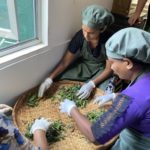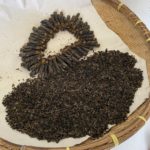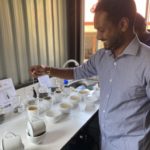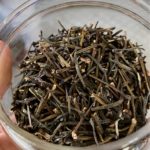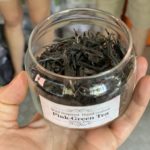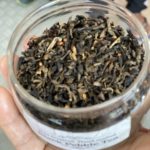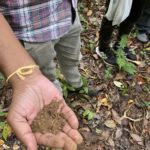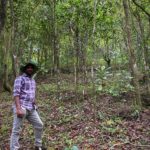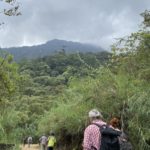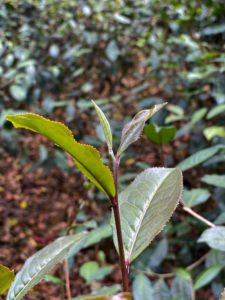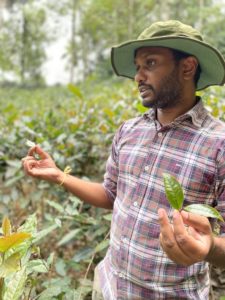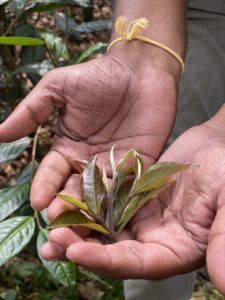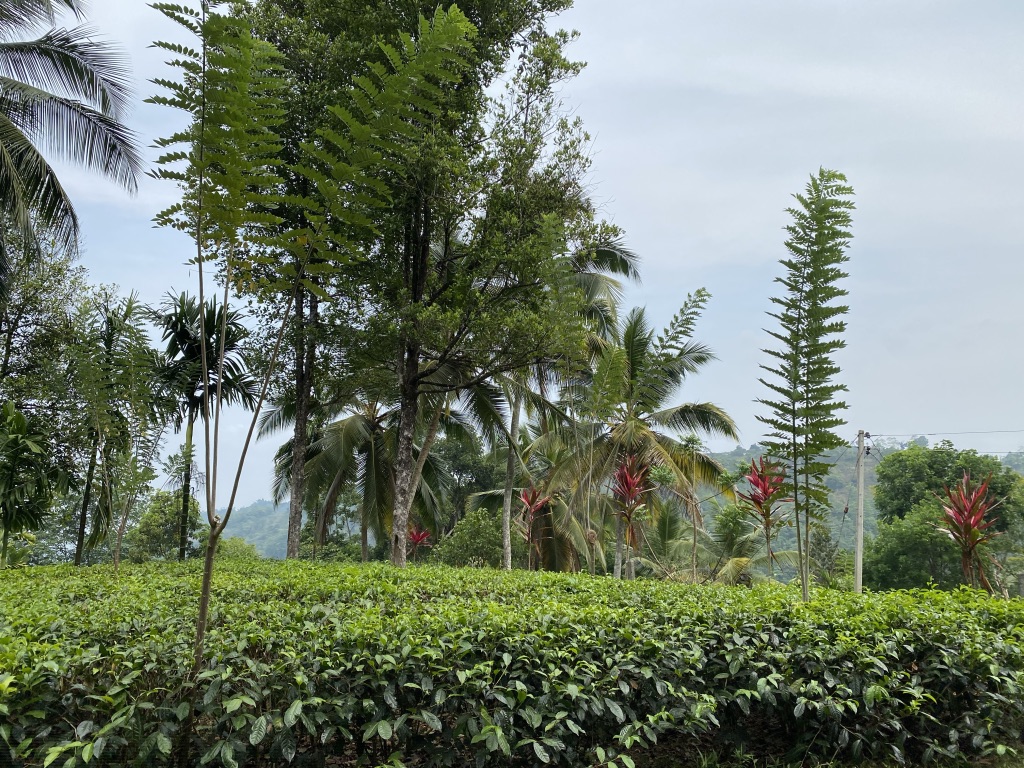
Community Driven Tea
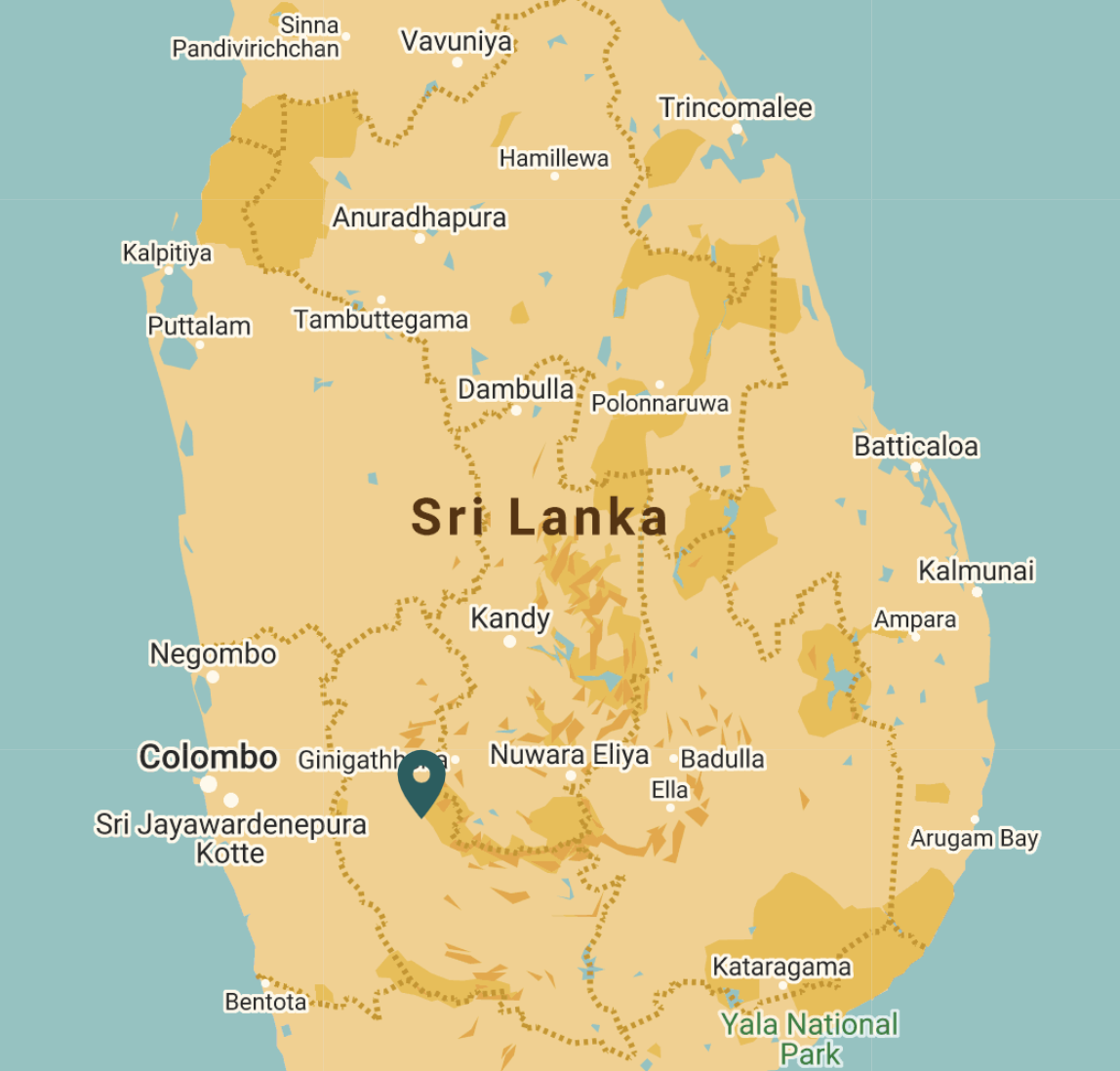
Nestled in the Adam’s Peak mountain range of Sabaragamuwa Province, in the tiny village of Erathna, Kuruwita, tea producer Buddika Dissanyaka has launched a new venture, Forest Hill Tea.
His wild grown teas are produced from an abandoned tea plantation that spans 100 acres, part of a forest that extends to the Holy Adam’s Peak rain forest reserve. The estate, located at 2,900 feet, was founded by Scottish planters during British colonial rule and abandoned for 130 years. Untended, the original plants have grown 30 to 40 feet high and are now surrounded by native vegetation.
Tea “Rods”
Dissanyaka’s diverse range includes Wild Warngala Mountain Tea, Black Pebble tea, Pink green tea (yes it turns pink with a drop of citrus), Tippy Orange tea, and Silver Tips. The factory also blends a Wild Spicy Tea.
Forest Hill produces orthodox full leaf and broken leaf tea, handcrafted and harvested, and processed in a budding micro tea factory as unique artisanal teas. The factory produces 250 kilos per month in seven types.
One of the more unusual teas is a patented “rod” wrapped in twine.
On one of our adventures with Dissanyaka, we picked new shoots at a farmer’s field from clone 2043 red-stemmed Assamica bushes. The pluck was two leaves and a bud, to be used for our own processing magic. The loose tea was later given to us as a parting gift. These bushes and other clones on the property are used to make silver tips, pink green tea, and black teas.
The Ceylon Wild Tea (website) tracks the processing of each tea monthly in real-time. In February, the largest batches were of Black Pebbles, Tippy Orange, and Pink Green Tea.
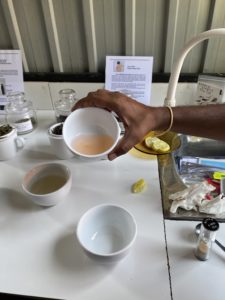
Tea is plucked and processed to order, with many members of the community involved in picking, processing, packaging, and transporting. It all begins with the farmers growing the tea organically and practicing sustainable forest-friendly reforestation.
The artisanal aspect is evident: withered leaves are hand-rolled using carefully considered techniques throughout the processing and creation of these fine teas. The teas brew up smooth, earthy and spirited.
A Steep Climb
Our group of 12 had the fortunate experience to climb the roughly two kilometers to 2,900 ft elevation to see the old tea trees. The Assamica trees have grown 40-50 feet high since they were planted 140 years ago by Scottish planters who abandoned the then 950-acre estate in 1890. In the 1950s, S.R. Yapa purchased 950 acres. In the 1970s the government reclaimed all but 50 acres. Currently, only tea from 100 wild acres is harvested to make Forest Hill Tea teas.
On this hot and humid day in early March, 30ºC temps greeted our group of 12 for the climb. We began with the steps of the pilgrimage climb towards Holy Adams Peak, known locally as Sri Pada, a 7,359-foot mountain. It was a one hour trek to these magnificent tea gardens where stone terraces from the original plantings remain.
Dissanyaka pointed out that the soil is sandy and drains well, with a good amount of carbon from decaying leaf matter. The land is ideally suited to the organic growing practices of local farmers.
How is the tea plucked? Young men ascend with bamboo ladders to pick leaves in the canopy of these old trees.
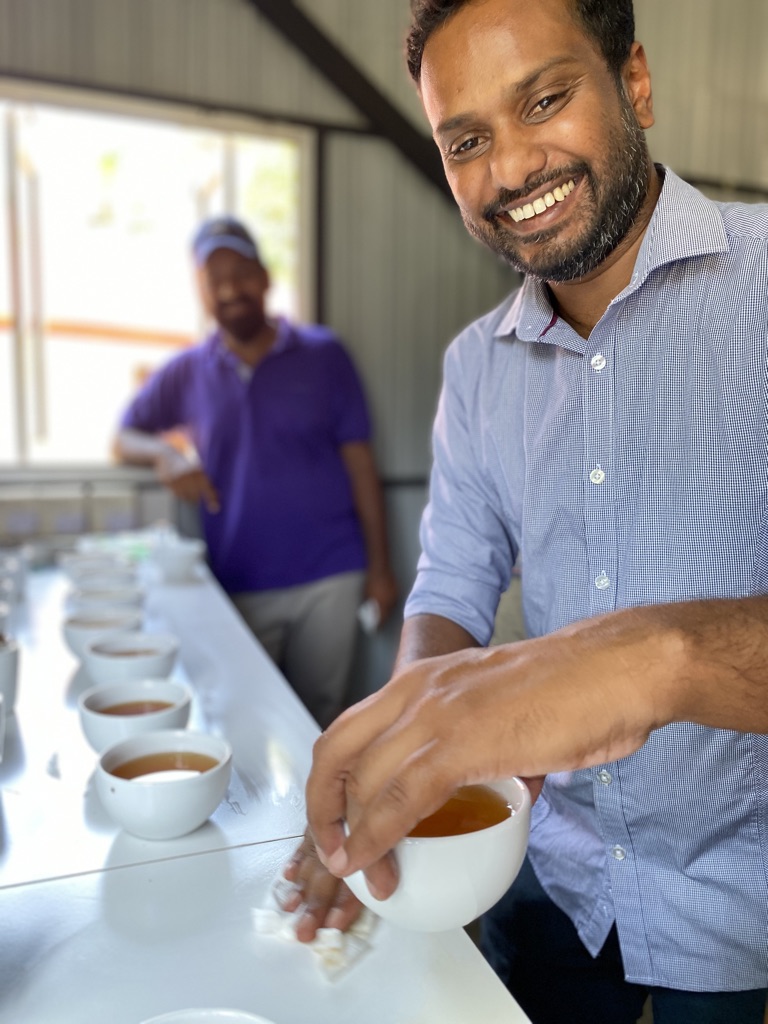
The preferred pluck consists of tips with 2-3 tender leaves. This is a special place, removed, and intriguing, all in one moisture-filled breath. The tea trees and rainforest trees intermingle, covered by creeping vines amid flowers of the forest floor.
Forest Hill Tea is pioneering a new model in the Ceylon tea industry. The business involves the entire community in all aspects, pays sustainable wages, offers healthcare, profit sharing, education, and skills development — all in support of local women.
Dissanyaka’s energy is admirable: he does his own marketing brochures, website, packaging, and oversees all operations in the factory.
His motto: “Community Driven Tea” is evident in each and every step on this noble path. The business is coming together nicely. Our group couldn’t wait to purchase his teas to take them back to our tearooms for our customers to try.
If you go
Useful Information for Forest Hill Tea
Address: Erathna, Sri Lanka
Phone: +94710424555
Webpage: http://www.ceylonwildtea.com
Imagine what the future holds for Dissanyaka, 36, and his community once tearooms and importers discover his unique specialties. Soon wild Sri Lankan mountain tea and Dissanyaka’s patented tea “rods” will be floating in a cup near you.
Tea Market
Get More Value from Your Tea: BRU Maker One
+41794574278
Jacque's Organics
(647) 804-7263
